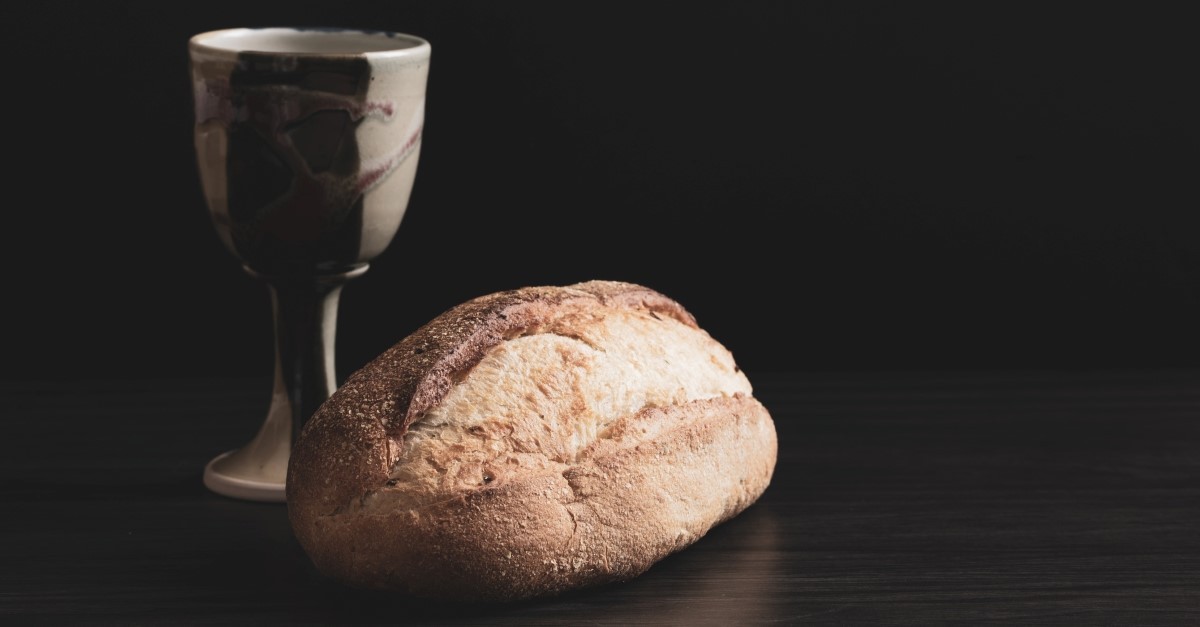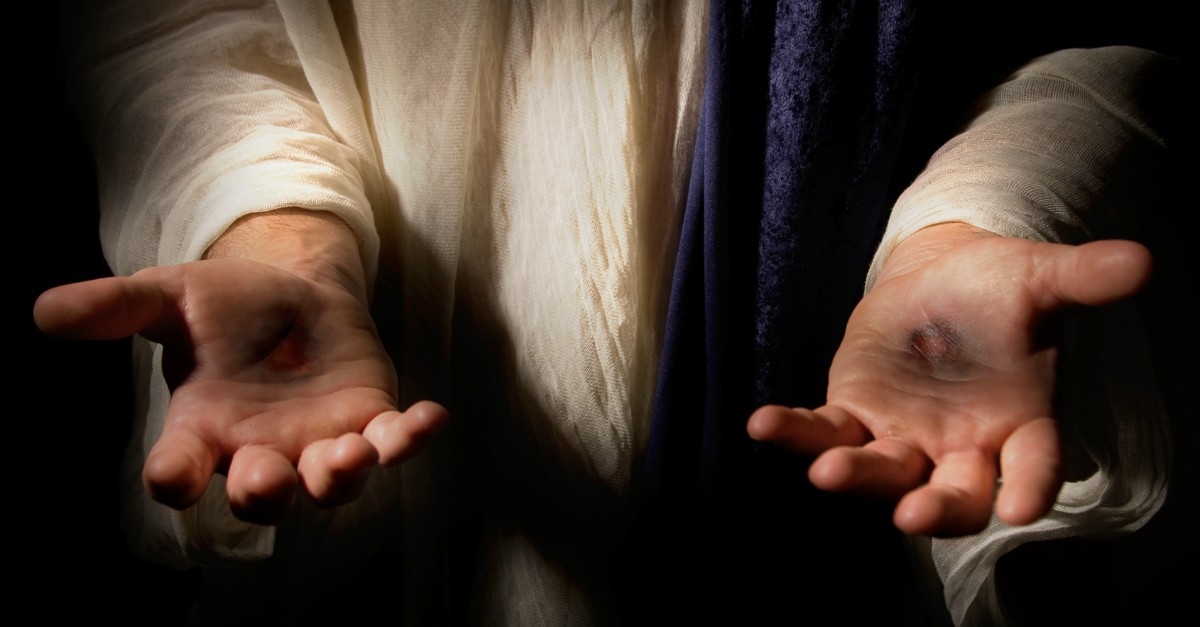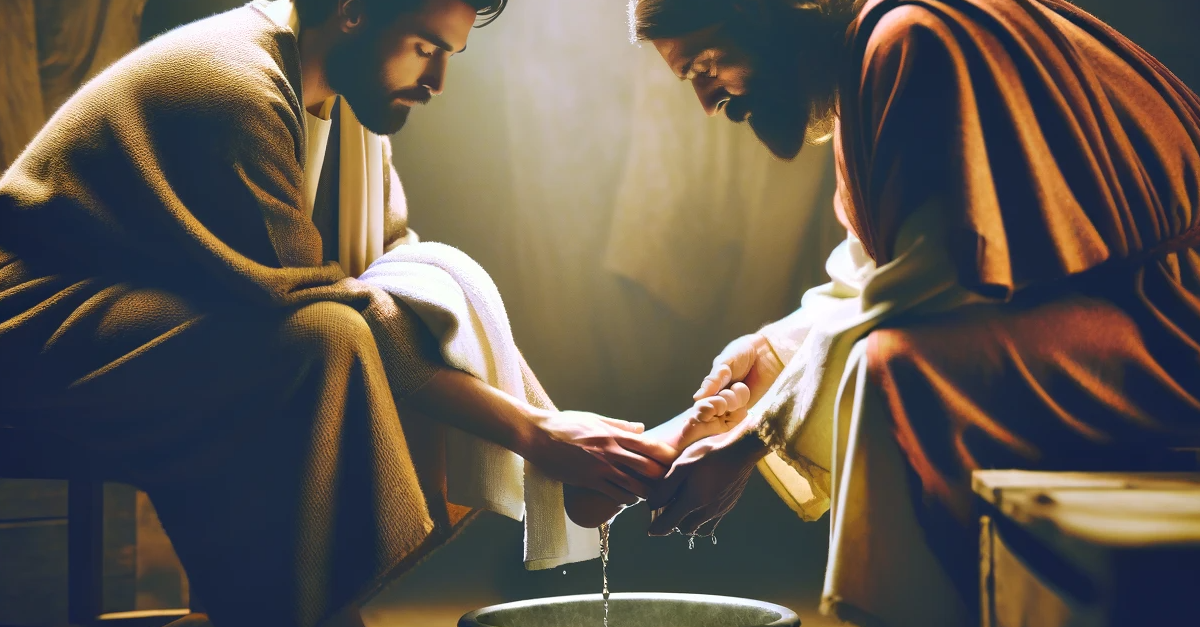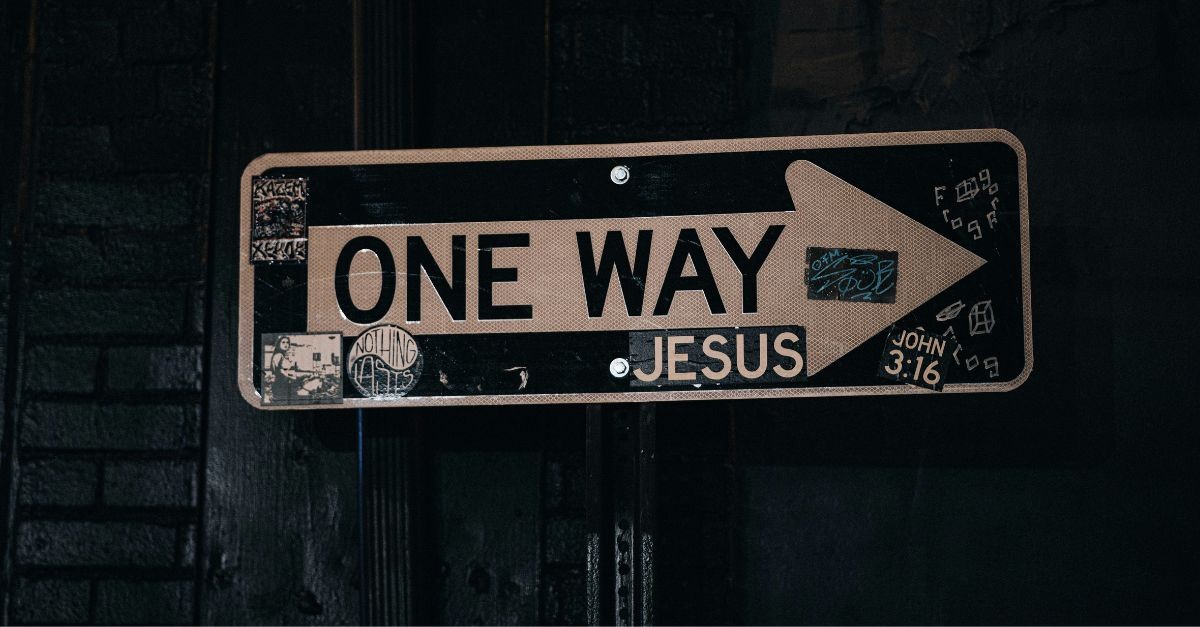
Millions of people around the world celebrate Easter, the week and time when we remember the death and resurrection of Jesus. Through Christ’s sacrifice, we can enter his finished work of salvation by grace through faith.
Whether on Easter or throughout the year, many Christians will also take communion, a tradition and sacrament commanded by Christ and passed down through the centuries. It takes many forms and varied levels of belief, but we take the bread and wine as a community.
Our modern communion flows from when Jesus participated in the Passover dinner the night before his death. We call this meal the Last Supper, since he would be arrested that night and crucified the following day. Like the rest of Scripture, the accounts of the Last Supper go far deeper and communicate more meaning when we explore the story from different Gospel passages, each revealing more truth and love from the Father through the Son.
Here are 7 reflective meditations in remembrance of The Last Supper.
Photo Credit: ©Unsplash/ Rey Proenza

1. Jesus Chose the Cross
When Jesus sat down with his twelve disciples, his closest friends and followers, he already knew he would face the cross. He understood he was the sacrifice to bear the sin of the world. He shared the bread and cup, redefining them as his body and blood, violent imagery speaking of what would soon happen and what needed to happen for redemption. Therefore, despite the pain he knew he would encounter, he chose the cross.
Jesus would fulfill John the Baptist’s words, “Behold, the Lamp of God, who takes away the sin of the world!” (John 1:29) No one forced him to take his life (John 10:18). As God in the flesh, he could have avoided the cross at any point. He willingly walked into his death with love and commitment. At the table with his disciples, he would also face betrayal, denial, and abandonment, all on top of the pain of crucifixion. Still, he offered himself as the new covenant of grace.
As the suffering servant prophesied in Scripture (Isaiah 53), he chose to obey his heavenly Father. He loved them and us with an active and personal compassion through self-sacrifice. However, he also knew his sacrifice would accomplish great things, a victory no one else could attain over sin and death, an invitation to live with him in his Father’s house. He obeyed knowing the joy to come, a reconciled relationship with those who would believe, including you and me.
Photo Credit: ©Unsplash/ Aaron Burden

2. The Bread and the Cup Are Personal and Relational Symbols
Jesus shared his redemption and the new covenant with his disciples. When God acts, it’s important to note what he did and did not do. The night before his death, he didn’t bring the disciples into a classroom, lecture them, and give them worksheets to better understand the spiritual revolution about to take place. He made it personal and treated them like friends. The Passover meal was meant to be shared with those closest to you, family and friends, and Jesus did so with his friends.
Upon breaking the bread, he gave thanks to God, and said, “This is my body given for you …” And when he offered the cup of wine, he said, “This is the new covenant in my blood, which is poured out for you …” (Luke 22:19-20) Yes, he died for the world, but he also made it clear to those near him. For you. Not a distant or abstract idea, incredibly personal. He wasn’t inviting them into a new religion but into a new relationship with power and transformation. And he longed to share it with them. “I have eagerly desired to eat this Passover with you before I suffer.” (Luke 22:15) He didn’t want duty or ritual but love.
He wants the same with us. He uses the symbols of the bread and cup to invite us into personal, engaged relationship. His body and blood offers forgiveness with a purpose—intimate and eternal relationship.
Photo Credit: Getty Images/Kara Gebhardt

3. Jesus Is the New Covenant
At The Last Supper, Jesus redefines the Passover meal. From the Old Testament, the Passover dinner remembered when God delivered a people from death unto what we call the old covenant, ultimately the Law given through Moses. Yet Jesus takes the old symbols and introduces the new covenant promised by Jeremiah and Ezekiel. Not a new system of laws, however. Jesus himself is the new covenant.
Through becoming the eternal Lamb of God, he defines the wine and bread as his body and blood, and when they partake of his being, they would be in a new, grace and Spirit-filled relationship between God and those who would believe. The old covenant was built on law and repeated sacrifices. But Jesus willingly offered himself and became the once, final, and complete sacrifice.
The disciples would have known about the new covenant from Jeremiah 31:31-34, a work of God giving a new, divine heart for righteousness. But Jesus didn’t just talk about the new covenant, and he became the agreement and commitment between himself and his Father. And we become part of that new covenant today by trusting and having faith in Jesus. We repent unto him and partake in his body and blood, his sacrificial work.
By becoming the new covenant, Jesus opened the way for all people, Jew and Gentile alike, to know God intimately through an intimate oneness through the indwelling Holy Spirit.
Photo Credit: ©GettyImages/kevinschreiber

4. Jesus Told Us to Remember Him
Since Jesus himself becomes the new covenant, he becomes the focus. He sat down with his disciples to celebrate Passover, when they remembered the time God saved Israel from Egypt and the angel of Death. However, he radically shifts the purpose of the meal and bread and wine. Jesus gives clear instruction, “Do this in remembrance of me.” (Luke 22:19) All of him—his life, love, nature, power, humility, story, suffering, victory, and more. He invited them, and us by extension, to remember a Person, not simply an ancient event.
Jesus wanted us to remember how he served, showed compassion, gave forgiveness, and lived heaven on earth by obeying the Father. The apostles and early church obeyed and taught this. Paul said, “For when you eat this bread and drink this cup, you proclaim the Lord’s death until he comes.” (1 Corinthians 11:26) Beyond communion, the apostles taught so much about Jesus’ life that they wrote the stories down and shared them, books we now call the Gospels.
While Jesus’ life happened in history, in time, the work was eternal. Jesus was crucified before the foundation of the world (Revelation 13:8). We can remember this event, engaging the unseen and eternal through the Holy Spirit. The Spirit personally engages us today and brings the words of Jesus and his work to our minds (John 14:26).
Therefore, let’s make sure Jesus remains the focus in every situation and tradition.
Photo Credit: ©iStock/Getty Images Plus/pamela_d_mcadams

5. Jesus Instructed His Followers to Humbly Serve Others
Jesus taught us through the actions of his life and the words he spoke. Before the Passover dinner, the Jews washed their hands as part of the ceremony and celebration, symbolizing cleanliness. Jesus took this opportunity to teach them about humble servanthood. He got up from the table, wrapped a towel around his waist, and washed his feet (John 13:4-5). This was the job of a servant: to remove the dust and crude material of the street from their feet. Yet he did this as the Master, as Lord.
Peter resisted this. First, he tells Jesus, “You shall never wash my feet.” Jesus explained, “Unless I wash you, you have no part with me.” This caused Peter to respond, “Then wash all of me!” Jesus refused to do this, too; the Son would only do as the Father instructed, to wash feet. Christ used this moment to invite his followers to live with humility and love, that service led to greatness in the Kingdom of God.
The way of Jesus is one of love in action, humility, and service, including self-sacrifice, as Christ would show the next day. Today, as we reflect upon The Last Supper, we should also learn this lesson. Christ is impressed with those who serve humbly, trusting God to reward instead of this world. We have to do this intentionally, as he did, and if we think about it, we’ll find numerous ways to serve those around us.
Photo Credit: Image created using AI technology via DALL.E on ChatGPT

6. Serving Others and Remembering Jesus Unites Christians
As Christians, the person of Jesus binds us together and unifies us. All traditions, disciplines, and sacraments only have meaning when they point to him and gather people to Christ. Our community and purpose become real in him alone. Just like Passover delivered a new people, Israel, Jesus taught, through The Last Supper, a new covenant that would produce a born-again people.
Christians take communion with others, coming together as one to remember Jesus. Paul wrote, “Because there is one loaf, we, who are many, are one body, for we all share the one loaf.” (1 Corinthians 10:17) Apart from Christ, we only have division. In Christ, we are one with each other and God.
As a practical example, Jesus didn’t have separate conversations with each disciple to explain the new covenant. He gathered his disciples in a room around one table. He engaged with a community. Christ’s sacrifice created a new kind of family, not of bloodlines, but of grace and Spirit. His act of service serves as the foundation of our unity and our identity.
In a world growing with division and hate, Christ encourages us to gather together, focus on him, and find unity and love. We are one body from his sacrifice. Let us serve one another as he loved us, expressing the unity he gives us.
Photo Credit: ©Getty Images/Delmaine Donson

7. The Last Supper Points to the Future Feast (Luke 22:18, Revelation 19)
To further show how The Last Supper happened in history but had an eternal impact, Jesus looked ahead to a future restoration. He lifted the cup and said, “I tell you I will not drink again from the fruit of the vine until the Kingdom of God comes.” (Luke 22:18) Jesus confidently declared a future culmination of redemption beyond his death, resurrection, and ascension.
Revelation 19:6-9 reveals this future feast. “Blessed are those who are invited to the wedding supper of the Lamb!” During The Last Supper, Jesus promises to go away, prepare a place for them at his Father’s house, and return to take them (and us) there. In that culture, this was clear wedding language. Revelation expresses how Jesus will return as the victorious Bridegroom and party with his Bride in the fullness of the Kingdom. The Last Supper wasn’t really the final supper, despite our name for it. This Passover dinner was a promise for future joy and celebration in the promised Kingdom of God.
Through the bread and wine, we remember his sacrifice and resurrection, the person and work of Christ. Part of that work includes the future fulfillment. History moves toward a feast where sin, death, and sorrow will end (Revelation 21:4). We may go through hardships and sorrows now, but The Last Supper reminds us we will also be in the new heaven and earth, the kingdom city with Jesus and all his followers. Forever.
Housefires - I Have Decided (Banner) from Housefires on GodTube.
Photo Credit: ©Unsplash/ Isaac Mitchell

Originally published Sunday, 06 April 2025.
